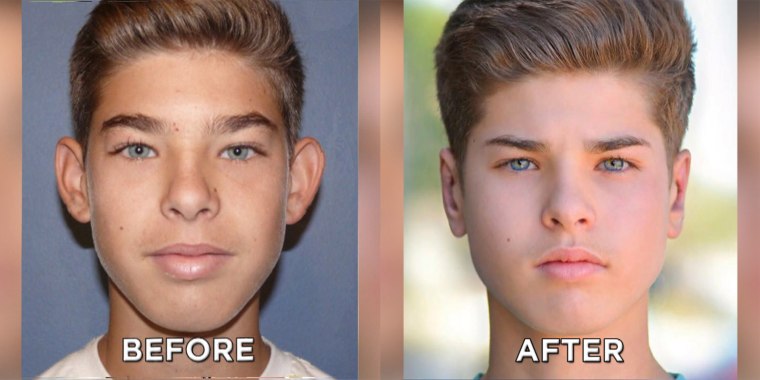Examining the Mental and Social Elements That Drive People to Consider Cosmetic Surgery as a way of Improvement
The decision to go after cosmetic surgery frequently expands past simple appearances, linking with social and mental characteristics that merit thorough assessment. Variables such as self-confidence, prevalent societal elegance requirements, and the pervasive impact of social media assemble to form individual inspirations for surgical improvement.
The Function of Self-Esteem
Self-confidence substantially affects an individual's decision to seek cosmetic surgical treatment. People with reduced self-confidence usually perceive themselves in an adverse light, causing feelings of inadequacy regarding their physical look. This adverse self-perception can drive them to look for medical treatments as a method of improving their self-image. The wish for renovation in one's look is frequently linked to an idea that such changes will certainly boost their overall self-respect and self-confidence.

Eventually, the function of self-confidence in the decision-making process concerning plastic surgery highlights the intricate interaction in between body image, individual fulfillment, and mental health. Recognizing this relationship is critical for medical care specialists to make certain that clients are making informed choices rooted in reasonable expectations and emotional well-being.
Social Appeal Specifications
Influenced by prevalent media representations and social narratives, social appeal standards play a vital function in shaping people' understandings of their very own bodies. These requirements are frequently characterized by an idyllic kind of appeal that highlights attributes such as slimness, youthful vigor, and symmetry. As these suitables are perpetuated through various channels, consisting of television, advertising, and movie, individuals regularly internalize these messages, bring about discontentment with their natural appearance.
The implications of these societal norms prolong beyond visual choices; they can affect self-confidence, mental health, and social partnerships. Individuals that regard themselves as falling brief of these criteria might experience feelings of insufficiency, motivating a need for cosmetic surgical treatment as a method of accomplishing social approval. This pursuit is commonly fueled by the belief that adapting these suitables will certainly boost not just physical look yet likewise social standing and individual fulfillment.

Influence of Social Media Site
The impact of societal charm criteria is more enhanced by the increase of social media sites systems, where curated images and idyllic representations of charm are ubiquitous. Customers are frequently subjected to filteringed system and modified pictures, which usually show unattainable physical attributes. This direct exposure cultivates a culture of comparison, leading people to analyze their own appearance versus these commonly unrealistic standards.
Social media influencers and celebs often promote aesthetic procedures, stabilizing the concept that medical improvements are a viable ways for attaining social suitables (plastic surgery rancho cucamonga). The exposure of these enhancements can create an assumption that undertaking cosmetic surgery is a basic method, thus influencing individuals to think about similar treatments as a pathway to improved self-worth and social approval
Moreover, the interactive nature of social media permits instant responses with sort and remarks, further strengthening the need to adapt to popular elegance criteria. Such interactions can worsen feelings of inadequacy and drive individuals toward cosmetic surgical treatment as a method of obtaining recognition. Inevitably, social media plays a pivotal duty in shaping perceptions of elegance, which substantially impacts the decision-making procedures surrounding cosmetic surgical treatment.

Social Perspectives on Look
Throughout different cultures, understandings of appearance are deeply rooted in historic, social, and financial contexts, shaping people' views on elegance and charm. In several societies, look functions as a substantial pen of identity, influencing social standing, expert chances, and individual connections. For example, in some cultures, light skin is typically connected with wide range and opportunity, while others may glorify darker complexion as symbols of toughness and credibility.
Furthermore, typical elegance requirements are typically perpetuated via cultural narratives, media representations, and household influences, resulting in varying ideals across different areas (plastic surgery rancho cucamonga). In Western societies, the emphasis on young people and physical health and fitness typically drives people towards cosmetic improvement, go to this website while in certain Eastern cultures, more subtle changes straightened with traditional looks may be chosen
Globalization and the spreading of electronic media have actually better complicated these dynamics, developing a hybridization of appeal ideals that transcends geographical borders. As individuals progressively browse these cultural stories, the pressure to adjust to certain look requirements can lead to the wish for cosmetic surgery, showing an intricate interplay of social values and individual aspirations. Recognizing these social perspectives is important in attending to the motivations behind plastic surgery considerations.
Emotional Impacts of Plastic Surgery
Lots of individuals seeking cosmetic surgical treatment report experiencing profound emotional influences that can dramatically change their self-perception and emotional wellness - plastic surgery rancho cucamonga. The wish for physical enhancement commonly originates from underlying concerns such as reduced self-esteem, body dysmorphic condition, or social stress Going Here pertaining to appeal criteria. For some, the prompt post-operative phase can result in a short-lived increase in confidence and complete satisfaction with their look, promoting a feeling of empowerment
However, these positive feelings might not be withstanding. Research shows that while some clients experience boosted self-confidence, others may encounter elevated stress and anxiety or clinical depression if their assumptions are not met. This inconsistency can occur from unrealistic perfects continued by media representation and cultural stories bordering charm.
Furthermore, the mental implications of plastic surgery extend beyond the person. Relationships with friends and family may be strained as social characteristics shift, causing sensations of isolation or alienation. Eventually, the emotional impacts of cosmetic surgical procedure are multifaceted and complicated, requiring cautious consideration by both potential clients and doctor to ensure educated decision-making and reasonable assumptions.
Verdict
In verdict, the choice to pursue plastic surgery is considerably influenced by a combination of self-worth issues, societal appeal criteria, and social perspectives on appearance. The pervasive reach of social networks additionally exacerbates these pressures, promoting unrealistic suitables that people typically aim to obtain. Comprehending these psychological and social aspects is necessary for attending to the motivations behind cosmetic surgery, highlighting the demand for an extra nuanced discussion bordering charm and self-acceptance in contemporary society.
The decision to pursue cosmetic surgery frequently prolongs beyond plain looks, intertwining with social and mental characteristics that warrant extensive examination. Ultimately, social media plays a pivotal function in forming perceptions of beauty, which considerably impacts the decision-making procedures bordering cosmetic surgical treatment.
As individuals increasingly browse website here these social stories, the pressure to adjust to specific appearance standards can lead to the desire for cosmetic surgery, reflecting a complex interaction of social values and personal goals.In conclusion, the decision to pursue cosmetic surgery is considerably influenced by a combination of self-esteem issues, societal elegance criteria, and social point of views on appearance. Comprehending these social and psychological elements is important for dealing with the motivations behind cosmetic surgical procedure, highlighting the need for a more nuanced discussion surrounding charm and self-acceptance in modern society.